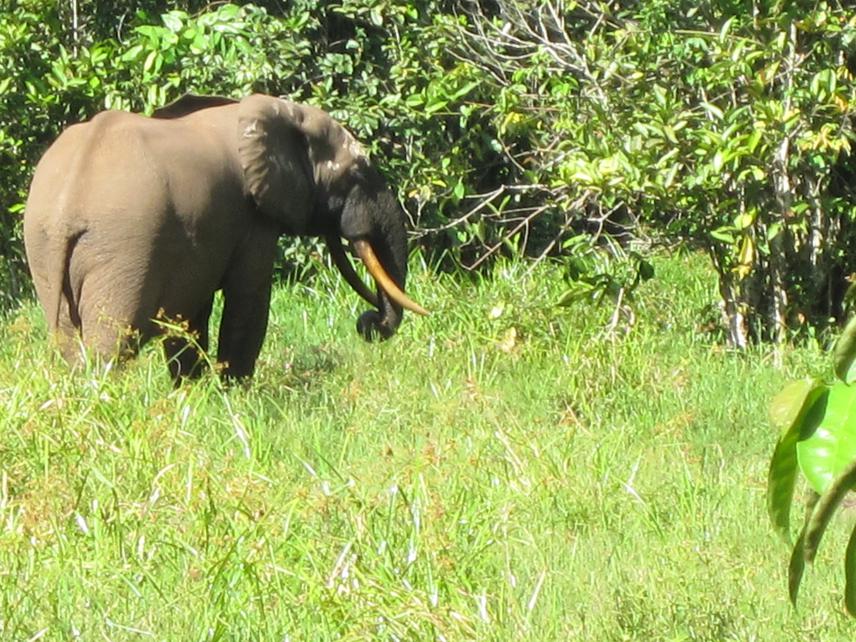Désiré Foguekem
Other projects
25 Jan 2011
Status of Human-Elephant Conflicts in the Campo-Ma’an Landscape, Southern Cameroon
This project would like to replicate Tin cans method and introduced novel Chilli-based deterrents in combination in order to develop self-efficient crop-guarding systems and achieve conservation goal.
Crop raiding is the most prevalent form of human–elephant conflict in Campo-Ma’an resulting to devastating economic losses for farmers and killing of elephants in retaliation for the losses. Conflicts have evolved from increasing land scarcity, wildlife hunting prohibitions and elephant-induced damage to property and loss of human lives. These create local hostility towards elephant and protected area. Effective mitigation of human–elephant conflict is an essential part of efforts to conserve elephants in this area.

Elephant outside the park roaming in a fallow.
Previous work was undertaken to assist farmers in implementing mitigation methods with string, tin-can system. It was observed that, the use of single, effective mitigation method to scare elephants such as strings, tin cans can become ineffective when elephants habituate to them. However, a combination of mitigation measures, especially those involving chilli-based deterrents can be much more effective if properly implemented. Chilli-based deterrents have been promoted as tools for reducing human–elephant conflict elsewhere. Suggested uses have included hand-held pepper grease, which is applied to rope fences around crop fields, and pepper dung which is burnt to produce a noxious smoke. There have, however, been few tests of chilli-based deterrents.
The project aim is to combine strings, tin cans and, chilli-based deterrent methods in order to develop self-efficient crop-guarding systems around Campo-Ma’an National Park for the benefit of both farmers and elephant conservation. By so doing, the project would like to achieve at least 75% reduction in the number of crop-raiding incidences and help re-establishing local attitudes that are compatible with elephant conservation.
The project will replicate mitigation method of strings and tin cans system using a participatory approach, in addition to the introduction of novel Chilli-based deterrent. This combination of mitigation methods will add significantly to sustainability of conflicts management, which Cameroon officials can apply to managing its still large and healthy elephant herds. The resulting reduction in human-elephant conflicts, will fostered positive relationships inside affected communities and reduced retaliatory poaching.
The project will be carried out in fall 2012 through 2013 in collaboration with Campo-Ma’an Park staff, intern students and local communities. The project activities will consist of a series of test experiment of the mitigation method selected, crop protection and damage assessment, and the assessment of the effectiveness of defence.